Walking into Okemos High School you see the typical high school culture, students exiting the gymnasium, faculty clearing the hallways and lockers closing, but conversation is much more complex than some could ever imagine in class room A207.
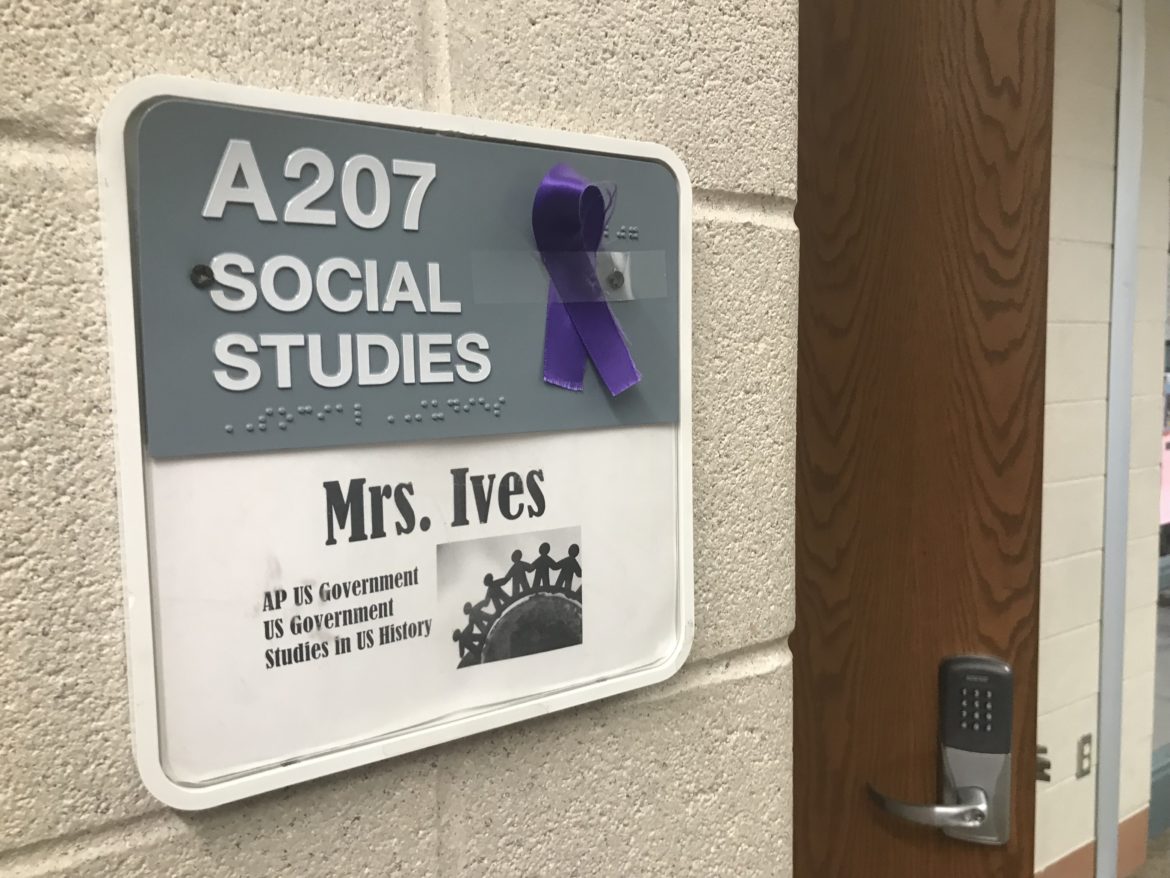
Okemos High School, Mrs. Ives classroom.
A diverse group of seniors take their seats, just before the bell rang. Bookbags are settled and lips are sealed. This is the fourth hour AP government senior classroom taught by Danielle Ives. Ives classroom walls is covered by campaign signs from elections decades ago and others that took place last month. Ives said the collection of signs began by simply using literature given out for campaigns.
“Often students would bring them in,” Ives said. “I’ve met people who were delegates or worked for one of the parties and many have given me piles of old signs and stickers,” Ives said. “It also gives me something to reference and hopefully by the end of the class, students could explain many of the individuals and something about the campaign.”
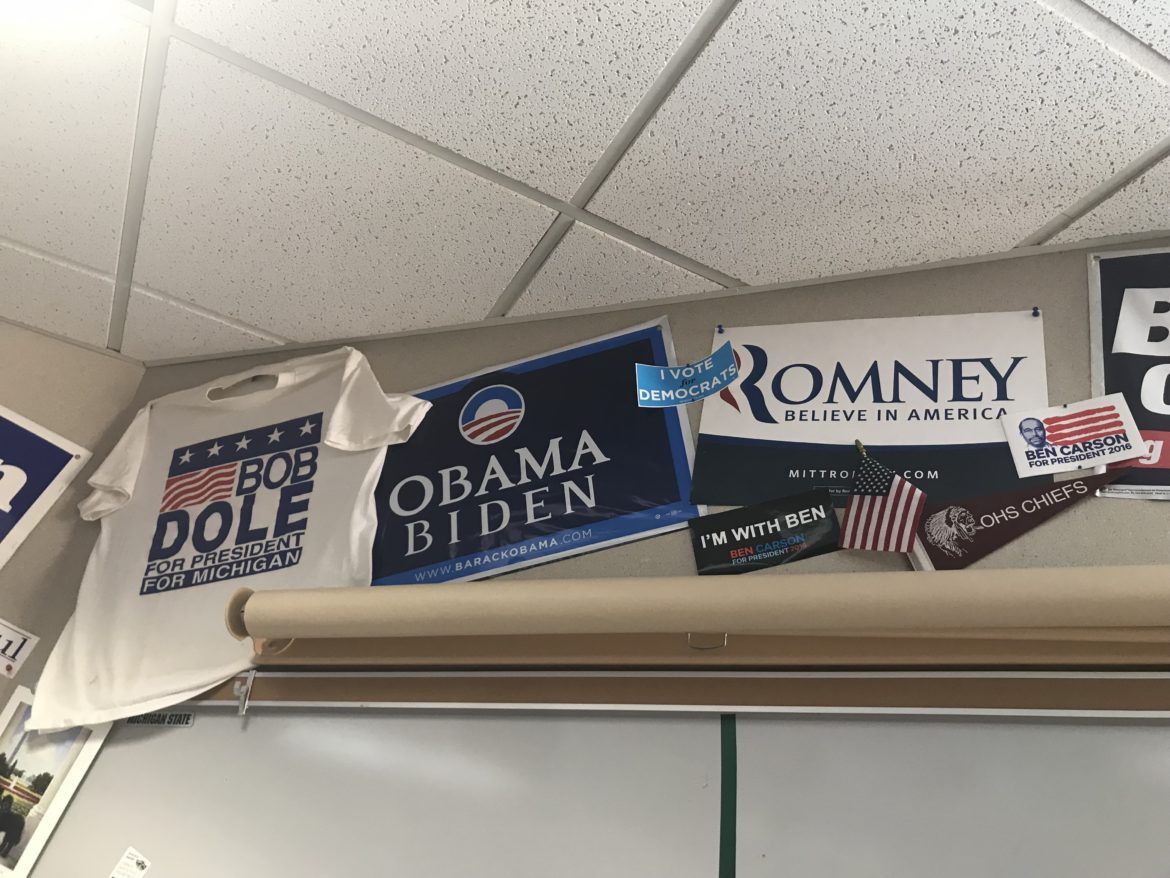
AP Government classroom A207 at Okemos High School.
Conversation around students relationship with politics and their political awareness takes place around this literature. Students get an opportunity to learn visually, also through open dialect in this classroom.
Sahil Cheema sets the tone of the 50-minute conversation by explaining why he is the only student in the classroom who is of the legal voting age in America, 18, and did not vote.
Cheema said, “Voting is based on education.”
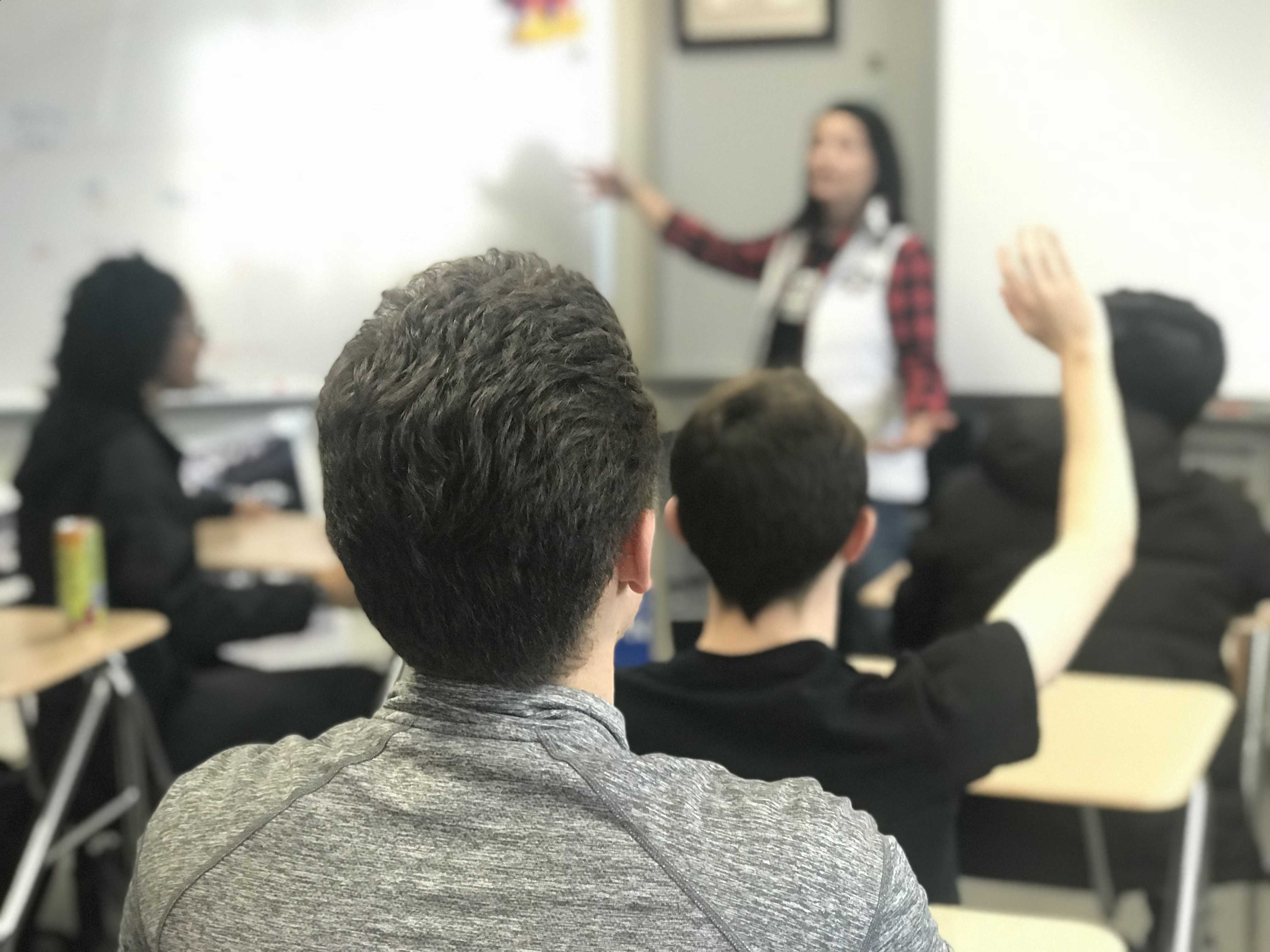
Conversation around political awareness amongst teens in America take place with AP government seniors and Mrs. Ives.
“The kids that have educated parents are the kids who get more involved with politics more and they do end up voting,” said Cheema. “The kids who don’t have parents who are educated don’t go out and vote. My parents weren’t really educated and I don’t vote.”
Student John Michael, was introduced to politics in the first grade when his parents voted in the 2008 Presidential election, the race between Barack Obama and John McCain. Michael’s parents took him and his siblings to the local middle school to watch them cast their votes.
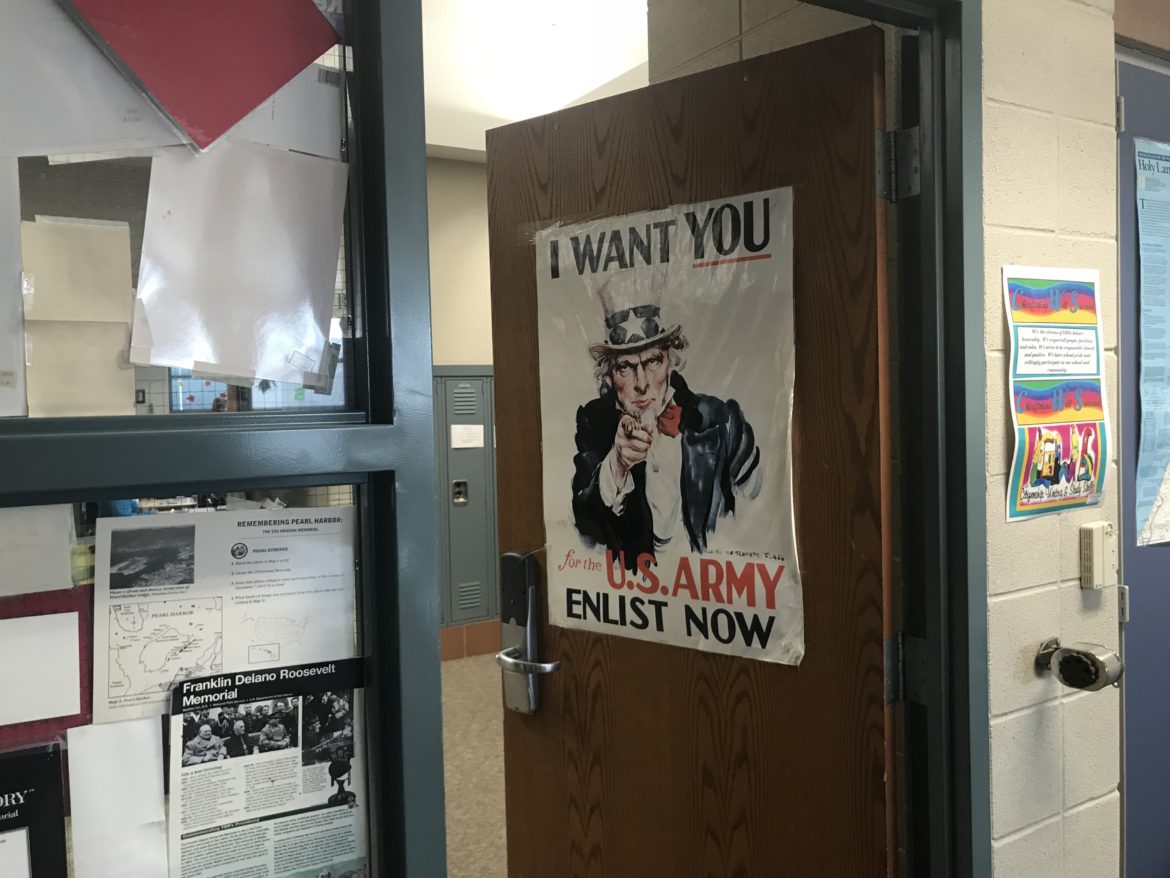
Literature on the walls of Okemos High School.
“I remember my mom saying she was going to vote for Obama and then explaining why and it was kinda interesting,” Michael said “It was a really cool experience. My parents are really reserved people and don’t share political views with us unless we press them. I would say my relationship came from sheer curiosity every since I went to go vote with my mother that year.”
Julie Brixie, who was elected 69th State Rep. J said she also began teaching her three daughters about politics at a young age as well.
“I ran for office when Annika and Heidi were only 3 ½ year old and my oldest was 5,” said Brixie. “So my kids have not only been exposed to politics but have been actively involved in political campaigns as some of their earliest memories.”
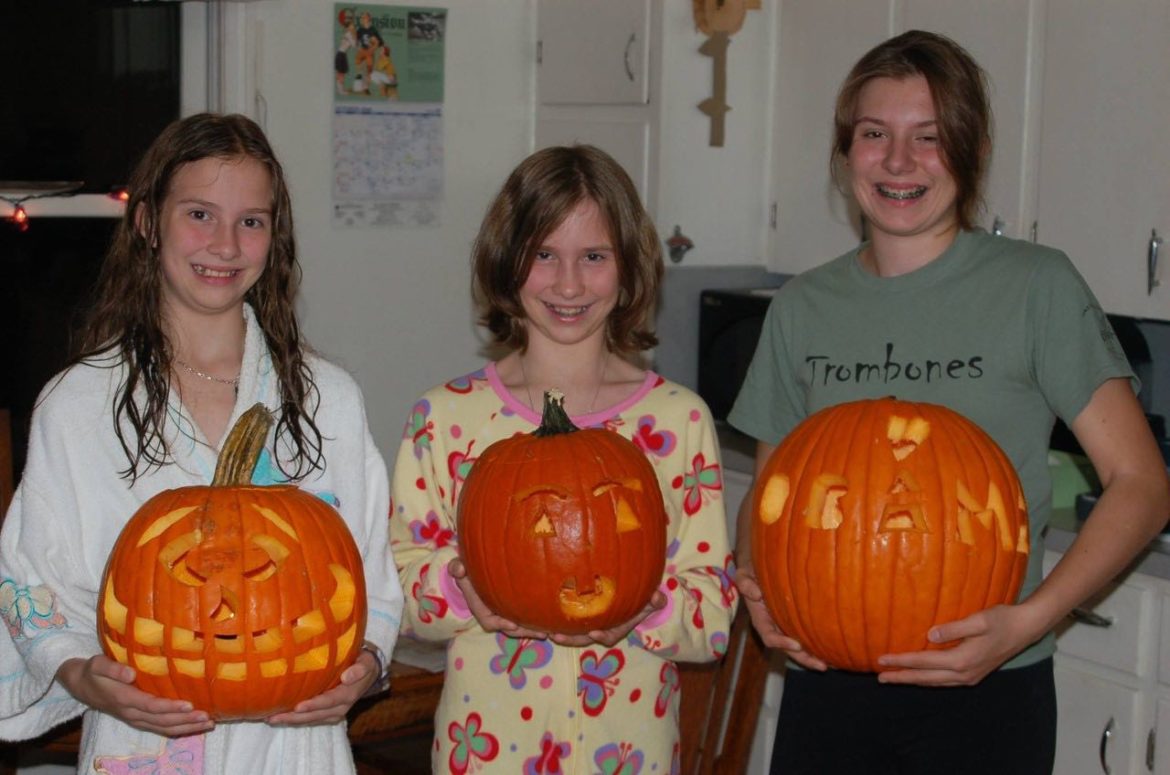
Brixie was so influential that Anikka Schultz graduated with a degree in sustainable parks, recreation and tourism from MSU in 2018, and now serves on the Parks and Recreation board for Meridian Township.
“Politics was introduced to me at an extremely young age,” said Schultz. “I can’t remember a time when my mom was not invoked in politics in some way, and my understanding of it only grew over the years. She was vital to my involvement in politics. She was the reason I knew so much at a relatively young age, not just about local politics but about national politics as well.”
Brixie’s children, Cheema and Michael all have walked the halls of Okemos High School, coming from different parental influences on politics. Michael encouraged Cheema to utilize social media, news articles and YouTube.
Megan Wiseman didn’t quite agree and she said, “Media could cause more confusion on those who have no bases.”
“There are so many things on TV and media and they don’t really explain things enough,” Wiseman said. “It’s not that you don’t care, it’s just that you don’t want to put in the effort to look them up.You never know with media what is true and what is not. So it ends up being a lot for us to figure out what’s going on.”
According the the PhillyVoice article written in May, a poll found that one-third of students surveyed approved of the way Trump is handling his presidency through the media. Emily Rolen said, “Day-to-day emotions over the past month report young adults feeling more negative than enthusiastic.”
This was just in May, where reporters started to see trends in young adults interest in politics decline due to the media and the current political climate.
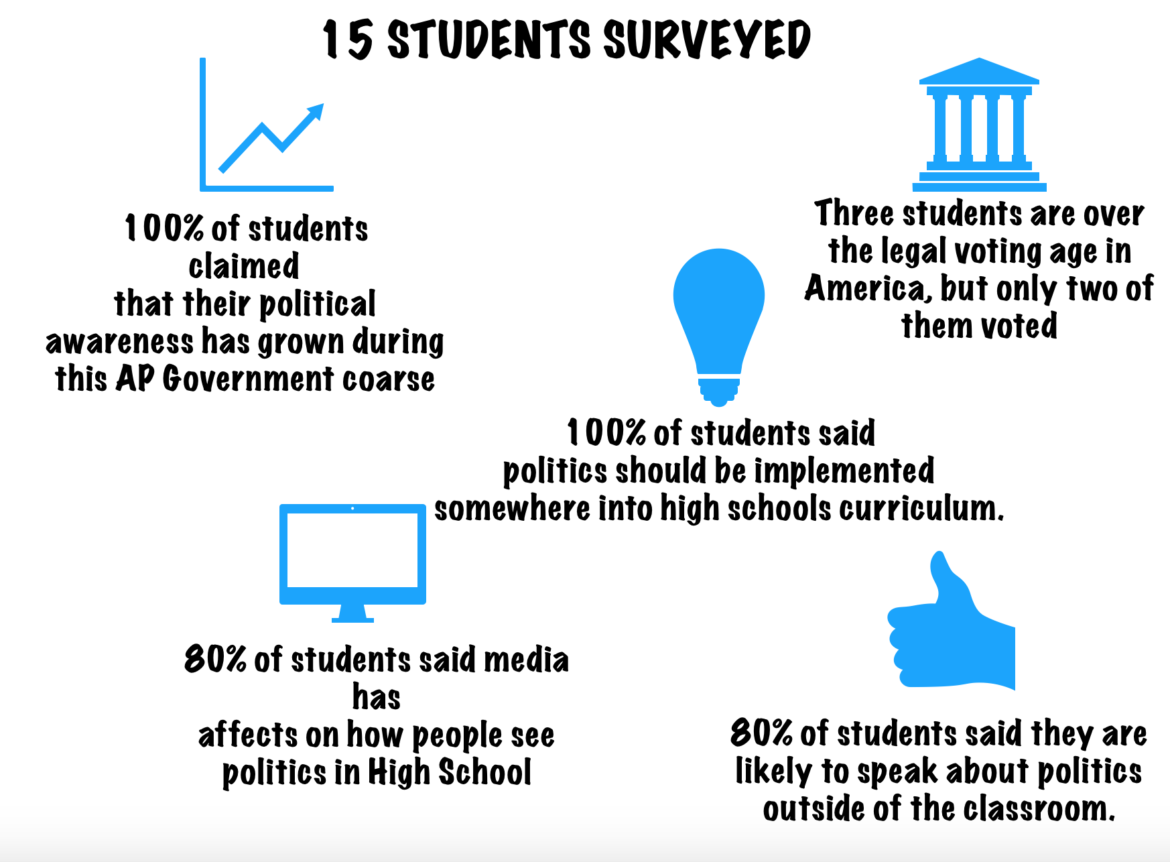
Survey taken of students in AP government at Okemos High School.
Despite some differences in political views due to childhood upbringing, students like Josh Virk are confident that OHS does have enough conversation around politics.
“Anytime there is things like the 2018 Kavanaugh hearing, the midterm elections, presidential election or any time it is largely spoke about in the media we would definitely talk about it at this school,” said Virk. “Otherwise political conversation is more contained to our friend groups.”
OHS implements classes like government to upperclassman students in their junior and senior year, said Virk. The class agreed that around this time their peers are getting the bases of politics if they have not already been influenced by media or outside sources.
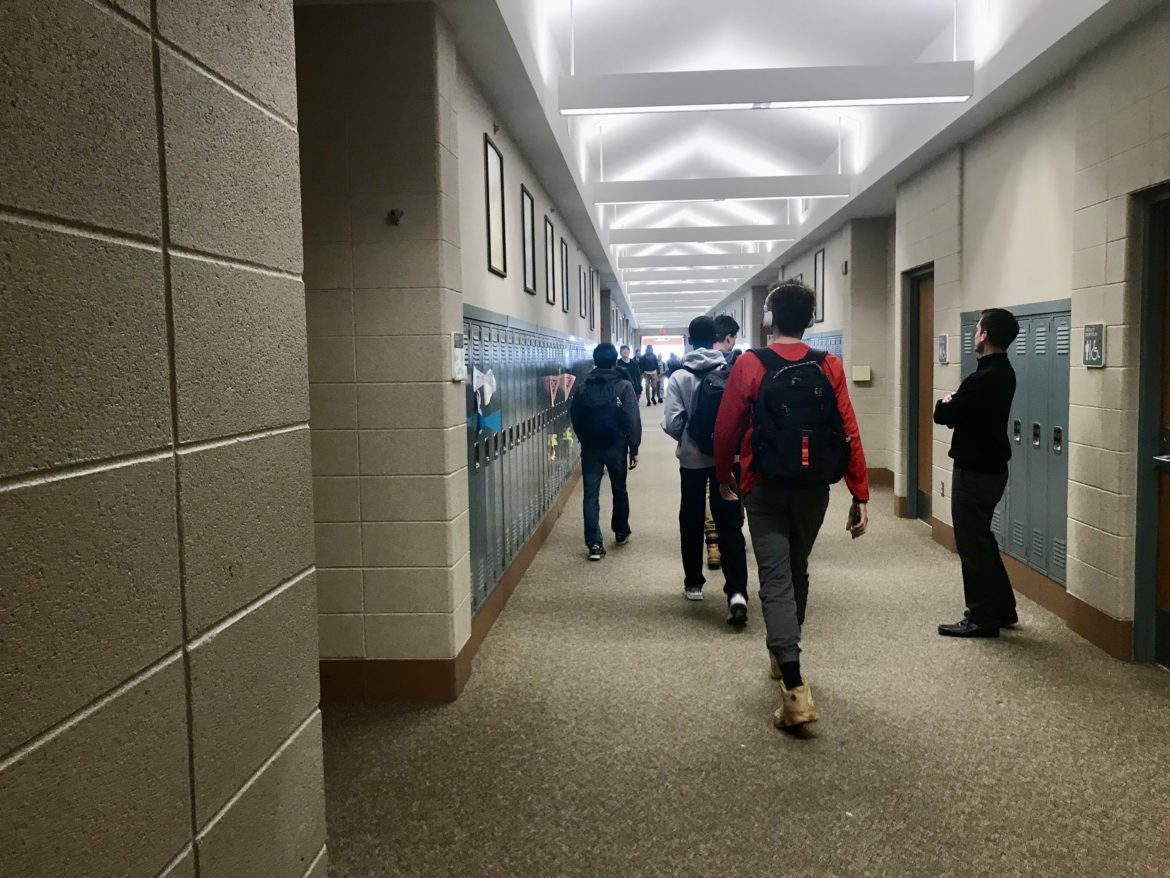
“Maybe if we implement it earlier it would help for even more people to go and vote,” said senior Virk. “I still feel like this school is pretty politically aware and descent.”
According to the Washington Post, only 56 percent of the U.S. voting-age population cast ballots in the 2016 presidential election, which was less than in the record year of 2008.
There are no organizations or events at OHS that are specifically for politics or education of voting, but teachers like Ives continue to provide information and a platform for students to express themselves.
Ives is not the only teacher that was recognized by OHS students, former student and 2014 graduate Annikas had two favorable people to recognize.
“Danielle Tandoc and Jodi Totti, would always talk about current events and how it related to us,” said Schaetzl. “I had many conversations with them about local and national news, expanding my critical thinking around politics.”
Teaching AP government in 2018
“There is a fine line,” said Ives. “There are a variety of political ideologies within the student body and staff and we can not alienate any of them. Also, if you are hitting students with politics all day they will tune out. I think politics can fit in many places but not everyday (except if it’s a government class obviously), and as long as it is authentic, germane and non-partisan I am all for it.”
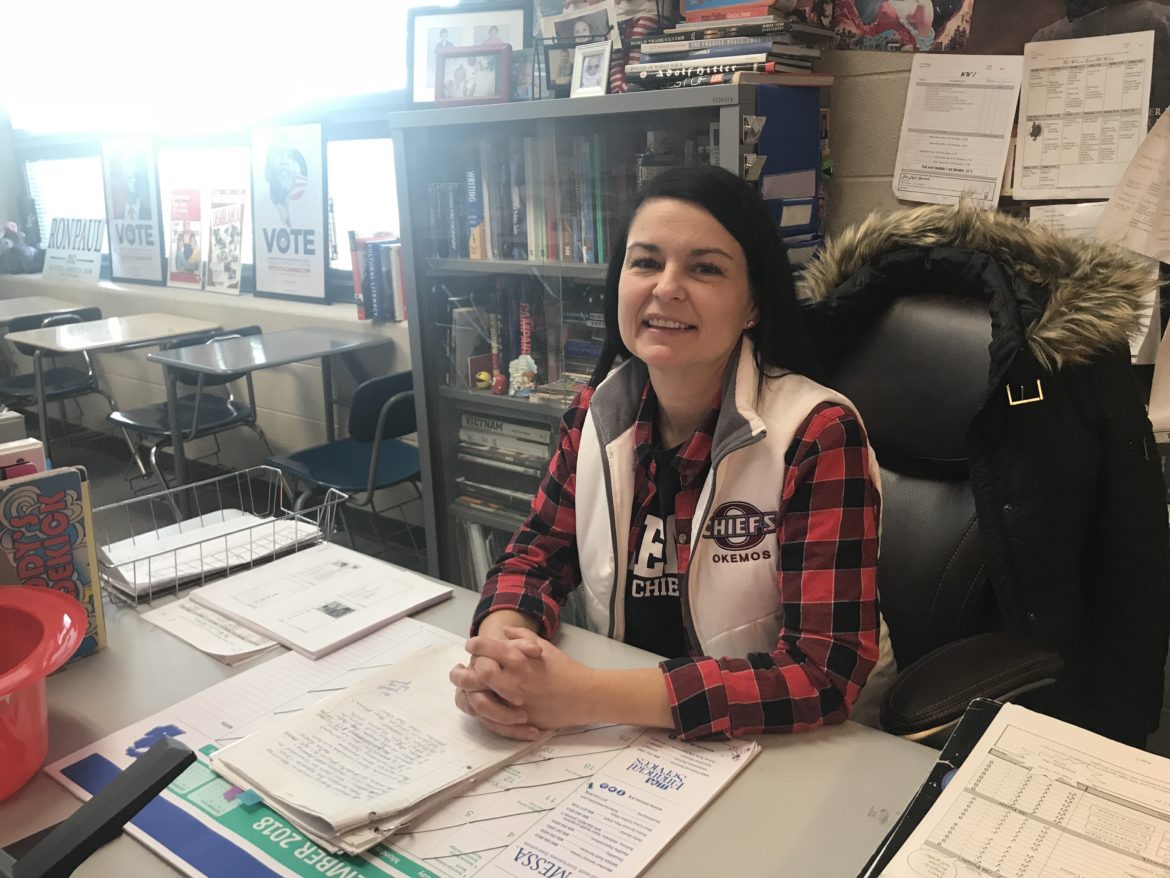
Okemos High School AP Government teacher Ives.
While public schools have to remain nonpartisan, there are many ways to get information about politics for students in Meridian Township. Starting inside of Ives’ classroom or contacting government officials like Brixie. Brixie has never done a political event for students at OHS, but is willing to speak with anyone.
“Students can and have contacted me about a variety of topics in the past,” said Brixie. “I am attending Haslett High School (this Friday) to talk to the Gay Straight Alliance about legislation I hope to introduce. I have also been contacted by a student at Okemos High School recently regarding questions about gun control. I would be open to a variety of different types of education and assistance from speaking to groups to hosting tours at the Capitol.”